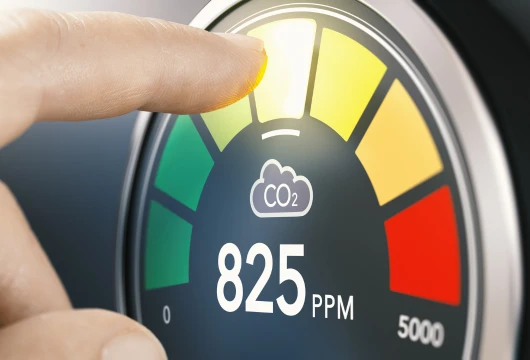To ensure the integrity of Carbon Markets
The Biden administration has introduced new ‘guardrails’ to ensure the integrity of carbon offset markets, a move of significant importance that aims to dispel distrust and enhance the effectiveness of these schemes. This step represents a significant effort to support controversial carbon markets and reduce planet-warming emissions, marking a crucial shift in the industry.
Critical Guidelines for High-Integrity Carbon Markets
Cabinet officials, including Treasury Secretary Janet Yellen, unveiled the government’s first broad guidelines for “high-integrity” carbon markets. These guidelines focus on building confidence in carbon markets by emphasizing integrity in three key areas: supply-side credits tied to genuine emissions reductions or removals, demand-side corporate accountability prioritizing emission reduction, and market integrity through greater transparency and reduced complexity.
White House national climate adviser Ali Zaidi stated, “It’s about building the confidence to use this tool more effectively at scale. Four years into the decisive decade for climate action, we’re not in a position to sideline any tools that will help us move faster.”
Addressing Criticisms of Greenwashing
Carbon credits allow corporations and countries to offset their greenhouse gas emissions. Each credit represents reducing or removing one tonne of CO2, often through projects in developing countries combating deforestation. Despite their potential, carbon offset markets have faced criticism for exaggerated or unfounded claims of emissions reductions, a practice known as greenwashing. This undermines the credibility of these markets and the effectiveness of the projects they support.
The new guidelines aim to tackle these issues head-on by setting standards for high-quality carbon credit. John Podesta, Senior Advisor for International Climate Policy, emphasized the pivotal role of these markets in advancing a low-carbon global economy, instilling confidence in the audience about the future of carbon markets.
Ensuring Accountability and Transparency
Yellen outlined principles that stress the importance of integrity across various market aspects. Accountability will be market-driven, with companies seeking high-quality carbon credits to avoid public backlash. The administration’s guidelines do not explicitly endorse standards set by the Integrity Council for the Voluntary Carbon Market (ICVCM) and Voluntary Carbon Markets Integrity Initiative (VCMI), but these organizations play a crucial role in setting industry standards and their influence is acknowledged.
Nat Keohane of the Center for Climate and Energy Solutions highlighted the significance of the guidelines, stating, “Right now, the problem we have is not that all credits are bad — some are good, and some are bad, and it’s hard to tell the difference. That’s where the administration’s guidelines come in, creating convergence and alignment about what good looks like.”
A Global Perspective on Carbon Markets
Prominent advocates, including former US climate envoy John Kerry, argue that government funding alone cannot meet the Paris accord’s goal of limiting warming to 1.5 degrees Celsius. Kenya’s President William Ruto has also hailed Africa’s carbon sinks as an “unparalleled economic goldmine” with the potential to generate billions annually.
However, Gilles Dufrasne of Carbon Market Watch urged the US government to ensure transparency and integrity in its promises. He stated, “There is currently no public data to transparently measure how much finance flows to climate action through carbon credits and how much is staying in the pockets of global north intermediaries and consultants.”
The Need for Quality Assurance
Barbara Haya of UC Berkeley praised the published guidelines but noted their resemblance to existing rules already in place at significant offset registries, which still need to yield satisfactory results. Haya, a researcher with two decades of experience studying offset markets, remarked, ‘I don’t think we should be advocating for the use of offsets until we see that quality can be reasonably assured,’ highlighting the need for caution and vigilance in the industry.
Environmentalists have also raised concerns about a provision in the guidelines that appears to endorse offsetting pollution from businesses’ value chains. The lack of a unified set of global rules governing carbon markets, as seen in the failed negotiations at the United Nations COP28 climate talks in Dubai last year, has left countries to develop their own bilateral and regional guidelines. This lack of global consensus increases the risk of greenwashing and undermines the effectiveness of carbon markets.
The Biden administration’s new guidelines for carbon markets represent a significant step towards enhancing the trust and effectiveness of carbon offset schemes. By emphasizing integrity, transparency, and accountability, these guidelines aim to ensure that carbon markets can play a meaningful role in reducing global greenhouse gas emissions and combating climate change.
For more in-depth analysis and inspiring climate news, click here.

